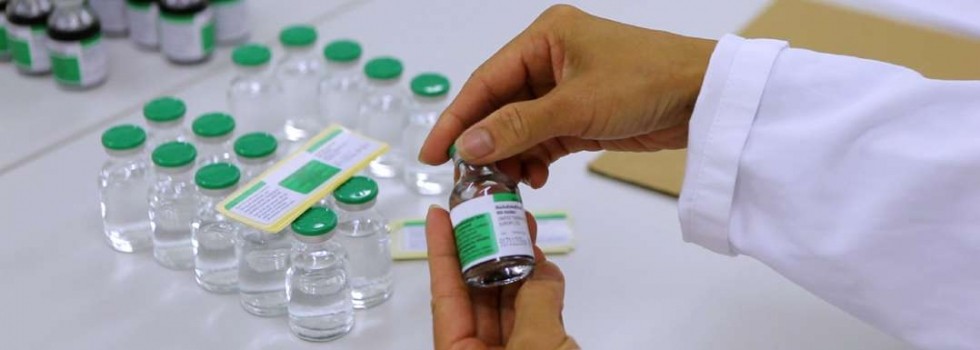Promotional Features
Control Towers in clinical trials: Harnessing logistics best practice to address pain points in the clinical trials market
In recent years, pharmaceutical companies, like those in many other global industries, have faced a growing number of challenges, both cross-market and industry-specific.
These challenges have increased the need for tighter control and oversight of clinical trial operations and have started to raise awareness of Control Towers as an effective solution. At present, Clinical Control Towers are an under-used approach, but one that can be particularly beneficial for the market.
Whether it's the impact of the COVID-19 pandemic driving an increase in decentralized trials, the war in Ukraine limiting the availability of participants in key markets, or the drive for ever-colder distribution networks, professionals managing clinical trial logistics have no shortage of challenges to overcome in getting their products to the patients who need them.
DHL Supply Chain works with some of the leading pharmaceutical and biotechnology companies, offering valuable insight into the most common and disruptive obstacles faced across the market. This intelligence has enabled DHL to hone its offerings to these customers, particularly through the unique end-to-end Clinical Service Centre Control Tower solution. By applying the breadth and depth of its global expertise to the clinical trials market, DHL is able to help the industry streamline the management of trials and ultimately improve patient outcomes.
The advantage of Network Design
The challenge of a fragmented network will be a familiar one to professionals managing clinical trials. For example, a customer recently approached DHL with 26 different suppliers, which in turn meant 26 separate relationships, multiple contracts and operating procedures, resulting in huge inefficiency. More often than not, these relationships are managed by the operations teams within pharmaceutical companies, who have many other priorities and limited time to dedicate to the often-complex details of the supply chain.
These same teams also find themselves needing to manage import and export processes in order to get their Investigational Medicinal Product (IMP) from the place of manufacture and into the hands of the patient. As import and export procedures are notoriously complex, varying from country to country and often in flux, navigating them can be hugely challenging for trial organizers whose expertise usually lies elsewhere.
For both challenges, the ‘Network Design’ element of a Control Tower solution can be hugely beneficial.
The simple act of bringing fragmented supplier relationships under one point of contact yields immediate benefits by freeing up the time of the trial organizer, enabling them to focus on other areas. It can also bring efficiencies as the logistics provider is able to spot opportunities for consolidation, either by running distribution themselves in certain markets or by integrating depots into their wider network.
At DHL, the aim is to remove study-specific solutions and instead operate a network solution, maintaining the regulatory and compliance standards that are required, while generating significant efficiency gains.
Likewise, working with a logistics provider with the operational expertise and scale to act as an import and export broker can save valuable time and money by ensuring paperwork is right first time. A logistics partner with a global footprint will also be able to advise on the best distribution strategy for IMPs to streamline the import and export process. For example, by taking advantage of trade agreements that facilitate the flow of products.
Network flexibility
Another obstacle often faced by pharmaceutical companies is a lack of flexibility in their networks, something that has come to the fore recently, particularly as a result of the Russia-Ukraine war. Both countries were important participant markets for clinical trials, but when conflict broke out in 2022 organizers found themselves quickly needing to shift away from these markets. This posed a huge challenge and created significant delays as organizers had to stand up entirely new operations in new markets, with very little notice, to keep their trial up and running.
At the same time, increasing patient diversity within clinical trials has been a key focus area of the industry, and rightly so, but expanding into new markets requires significant flexibility. Accessing hard-to-reach markets, where there is most need to recruit trial participants, can be most easily achieved by working with a partner and tapping into their established global footprint. This has the additional benefits of creating a much more stable network and keeping costs down by allowing trial organizers to import in bulk and manage distribution in-country, rather than across borders.
Improving visibility to cut waste
The Control Tower model brings with it systems of integration and data gathering, which has the key advantage of improving visibility for trial organizers across the entire clinical trials process and provides the insight to make continuous improvements. Across DHL’s customer base, it has found that between 40% and 50% of stock is destroyed for a number of reasons. This can be easily addressed by analyzing data to show how inventory is behaving across markets, and when and how to make modifications.
A focus on sustainability
Finally, the data and insight gathered by a Control Tower is crucial in helping pharmaceutical companies design effective Environmental, Social, and Governance (ESG) strategies, and in reducing overall carbon footprints. Access to real-time information, as well as mid- and long-term data, is what enables DHL to map carbon footprints, create baselines and set relevant Key Performance Indicator’s (KPIs). This can all be generated by a Control Tower.
Likewise, the streamlined operations that are possible from working with a logistics partner brings the additional benefit of reducing the reliance on single use shippers in favour of bulk shipments and more sustainable in-country distribution.
Maintaining quality in a global network
Global quality oversight is critical to any pharmaceutical operation, not least when it comes to the operation of clinical trials, as the stakes are much higher and the tolerance for errors much lower. A Control Tower brings huge benefits here, with quality controls such as audit schedules and standard operating protocols built into processes from the outset. A partner like DHL makes a commitment to guaranteeing the highest levels of quality when working with clinical trial organizers, and has teams dedicated to setting up systems to continuously monitor operations, create intelligent metrics, and predict and manage any issues as they arise.
Ultimately, adopting a Control Tower model will be one of the key enablers for clinical trial organizers as they continue to navigate the challenging economic and geopolitical environment. Whether it’s working to drive cost efficiencies, reduce wastage, or improve patient diversity, a partner like DHL Supply Chain, with a truly unique blend of expertise, and a global plug and play solution on offer to tackle these challenges, frees up pharmaceutical companies to focus on their ultimate goal of improving patient outcomes across the globe.
Author: Aiden Smith, Head of Global Customer Solutions, Clinical Logistics, DHL Supply Chain



